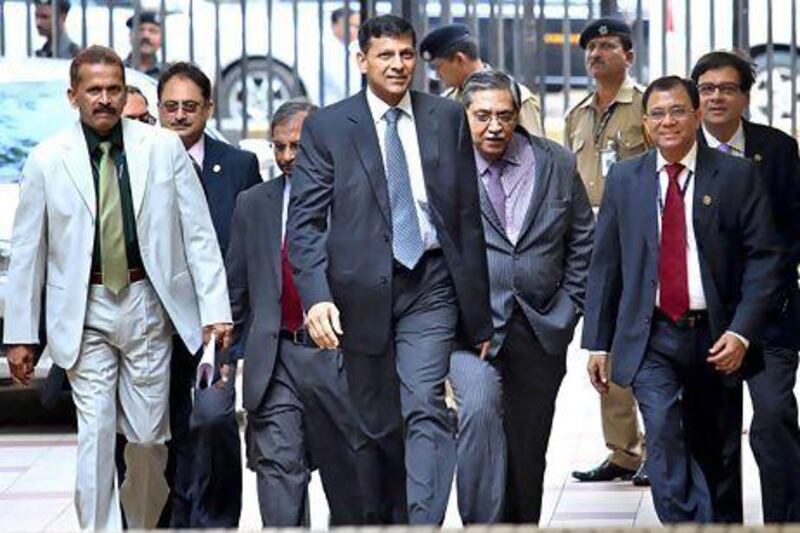Raghuram Rajan took up the role as India's central bank governor yesterday, stepping in at a time when the country is struggling with a toxic mix of slowing growth, high inflation and a plummeting currency.
The Reserve Bank of India (RBI) is facing severe challenges as it tries to balance the multitude of issues the country is facing in its monetary policy decisions.
Mr Rajan, a former IMF chief economist, took over from D Subbarao, who finished his five-year tenure yesterday.
"This is not an easy time," said Mr Rajan. "The economy does face challenges."
But he gave assurances that the bank would provide the clarity in its approach that the public has demanded.
"At a time when financial markets are volatile, and there is some domestic uncertainty because of impending elections, the RBI should be a beacon of stability." But he warned that some of the actions he will take will not be popular. "The governorship of the central bank is not meant to win on votes or Facebook 'likes'."
The rupee has plunged about 20 per cent since May to a series of record lows against the US dollar, hitting 68.845 rupees last week. Yesterday it was trading at about 67.
Efforts by policymakers have done little to support the fragile currency so far, as the current account deficit remains wide and there are expectations that the US Federal Reserve will start to wind down its stimulus programme.
Official data released last Friday showed that India's GDP growth slowed to a worse-than-expected 4.4 per cent in the quarter between April and June, prompting analysts to reduce their forecasts for economic growth in the current financial year.
Stabilising the rupee is a primary concern for the RBI.
"The tight liquidity situation, volatility of rupee, threats from imported inflation [in the face of sharp slide of the currency] and marked moderation of growth are some of the major problems through which Mr Rajan has to steer the central bank," said Sujan Hajra, the chief economist at the securities firm Anand Rathi.
"The world will be watching his actions very closely."
But Mr Rajan declined to comment on his stance until the next monetary policy statement, which has been postponed until September 20. Widely respected in India, he has been credited with predicting the global financial crisis three years before it occurred in 2008. His previous role was as chief economic adviser to India's finance ministry.
Mr Rajan, who was born in Bhopal, studied at the Indian Institute of Technology Delhi and Indian Institute of Management Ahmedabad and completed a doctorate at Massachusetts Institute of Technology in the United States.
He has written several acclaimed books, including Saving Capitalism from the Capitalists.
A survey released yesterday confirmed fears surrounding the slowdown in India.
The HSBC services purchasing managers' index showed that business activity stayed below 50 last month, which represents a contraction, down at 47.6 compared to 47.9 in July.
"Notwithstanding the weak growth backdrop, the RBI will likely keep its liquidity tightening measures in place for a while still to help contain the depreciation of the currency," said Leif Eskesen, HSBC's chief economist for India and Asean.
"Combined with the heightened macroeconomic uncertainty, this will continue to weigh on growth in coming months."





